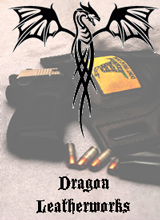Just finished reading the book On Killing by Lt. Col Dave Grossman, Overall I will say it was a great book, but not without its flaws.
OK to start Lt. Col Grossman is a soldier with an impressive record, he also has obviously spent a LOT of time interviewing war veterans and reading historical accounts, as well as military records of battles, and he does an excellent job of citing them, from Afganistan vets down to accounts from the Napoleonic Wars and the American Revolution.
His findings are VERY interesting, the most shocking being is the reluctance of soldiers to take a human life, even in the heat of battle or under orders.
He notes that only about 2% of soldiers in the armed forces are really effective and efficient killers. Other factors also add to a soldier’s killing ability, such as distance from their target, what he calls “Mechanical distance” (ie: Looking at a target through a rifle scope or bomb sight…even more so if the sight is electronically enhanced, making the targets look less like living humans), and working in teams, such as tank crews, naval crews, or operating a fixed machine gun.
Interesting accounts of things like rifles found with multiple complete loads in the barrel on a civil war battlefield. It was concluded this wasn’t operator error, but soldiers willing to load up their guns, but couldn’t bring themselves to shoot at the enemy troops on the other side of the battlefield. Meanwhile at the same time there were soldiers who were noted to have fired in excess of 400 rounds, which is physically impossible to do with a caplock rifle musket without cleaning the powder fouling, meaning that a few troops were actually sending shots downrange, while many others were simply loading guns and passing them forward.
Also he notes in battles with artillery, the artillery crews did the majority of the killing, thanks to distance and working as a team rather than individuals.
He discusses how modern military training (mostly doing their best to make training more like a real battlefield, and the targets more like living people) to break down these psychological barriers.
He also goes to great length to talk about how war atrocities happen, and the effects they have on soldiers on both sides.
Another section was about PTSD, causes, and ways to mitigate it. (One of the big factors is weather the soldier gets support from veterans and family when they get home)
All very interesting stuff. As a man who carries deadly weapons, but has never served in battle, there isn’t a ton, besides interesting psychology I could get from this…except for maybe the fact that more Americans are going armed today than ever before, yet murder rates are at an all-time low, and the antis prediction of “Blood in the Streets” is unfounded. Also it gives me some things to think about for if I ever need to draw my gun to defend an innocent life.
One big problem with the book when he attempted to translate his study to civilian life. Suddenly he goes from a logical man citing meticulous evidence to support his case to a bleeding heart talking about nebulous problems with “today’s youth”. Now he makes a good case that violent video games and movies might indeed help break down some of the barriers held by people against homicide, he seems to be alluding to a youth violence problem that he has no factual basis for. Also he makes some serious contradictions by citing gang violence (which invokes many of the factors of military killing with its hierarchy and peer pressure, and doesn’t take into account the sheer number of repeat offenders in the criminal system, which would support his 2% citation) or his many references to the Columbine Massacre, which was done by a pair of obvious sociopaths, not sane people.
I really wish I had skipped the last part, as it was all garbage, on what was really an amazing book. I recommend it to everybody….but when you get to the section “Killing in America”, just put the book up.



-Some context to go with your observations.
Look at the publication date and consider that this book is IIRC an adaptation of a study the Colonel did for the War College (I think) over the course of the early years of that decade. Further, take into account that the section on US civilian killing draws heavily on the available published scholarship on the topic during those years. Think about how political much (most?) 0f that was then and how little any of it would relate well to the Colonel’s own research of military combat. I’ve long had the impression (I bought my copy in ’98 or ’99 at the local B&N) that the civilian stuff was an editorial graft to his original manuscript – one he chose to accept as the price of mass market publication. I could be wrong, but the handling of the data is just too different to make me think the civilian portion is his own research from original source material.
Makes sense, I’ll just say for certain that his work on killing within military actions is masterful, and well presented, and his civilian section is not.
Also the sections do read like a lecture series more than a book, as he frequently repeats himself as if he’s doing a re-cap at the beginning of one lecture, or a recount at the end.
I remember when the same prediction was made for pen-and-paper role-playing games. Much like predictions about concealed carry, the wave of murdering and looting geeks never materialized.
Most people (99.999%+, I’d say) can distinguish between fantasy and reality.
The Colonel’s assumptions about the origin of the multiply loaded muskets is flimsy, at best.
It is well documented that troops can fail to realize their weapon didn’t fire (usually because they forgot a key step), and load another charge on top, due to stress and fear. The ones who forget are also more likely to forget the same exact thing (like capping a percussion gun, or closing the pan of a flintlock) several times. Linear tactic troops were extensively drilled through their loading actions as automatons, and they will follow their programmed drill without conscious thought — if an error has krept into their drill, it will be followed as well.
Given that even happens on a fairly regular basis in re-enactments (where the stress level and fear is incompariably lower) tends to reinforce the idea that troops just screw up under stress. Remember that, just as recoil will often be overlooked in a life and death shooting, a LACK of recoil can be as well. Especially when you are sending out volleys of black powder charges in groups of 60 or so, lined up shoulder to shoulder — you can genuinely not realize your gun misfired. Crashing waves of volley fire, choking clouds of BP smoke, fear, etc., can make it so the soldier in the frnt line actually has less of an idea what is happening in his immediate vicinity, then the artillery crew observing from a couple hundred yards away– which is WHY the emphasis on endless rote drill, to eliminate the need for conscious thought.
The following anecdote is worth every penny you paid for it. As part of ROTC training to be an Army officer, I attended “Camp All American” in 1997. IIRC, LTC Grossman was the Officer In Charge of the platoon tactical exercises. On Killing was on sale in the only shopette available to us and, as “warrior/scholars” and knowing that we’d meet the man behind the book, many of us bought it. Perhaps I should say that many of us purchased it. Anyway, our reaction then was very similar to yours now: great right up until he started talking about civilian application of his thesis. More than one copy made it into the trash (or was left somewhere in the rainforests of Fort Lewis) thanks to the civilian part. I found my copy a year or so ago while in graduate school and gave it a quick read. I still mostly agree with your , and my, initial assessment though as a scholar I take a great deal of issue with his methodology… especially concerning video games. Anyway, this book is still a topic of conversation amongst interested warriors and is required reading in many officer indoctrination programs. By the way, LTC Grossman gave a truly inspiring speech to our collected regiment invoking classic literature, philosophy and Latin wherever possible. Again, IIRC, 60 Minutes interviewed him?
Pingback: Dave Grossman Interview | Weer'd World